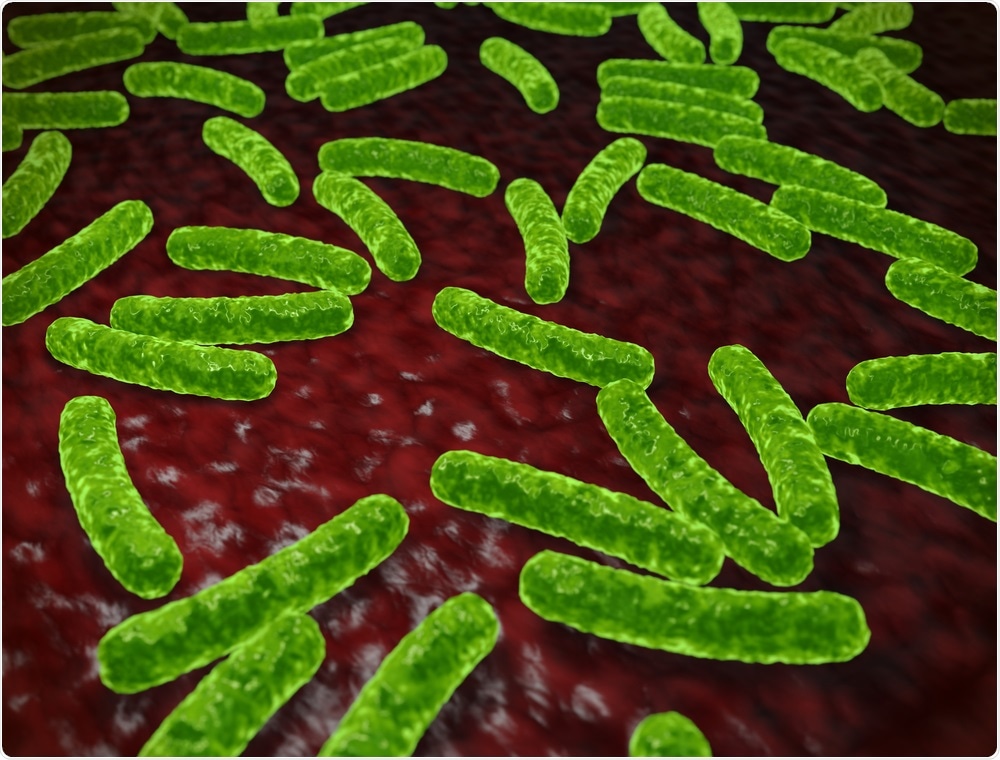The research was published in the American Society for Microbiology journal Applied and Environmental Microbiology.
The study showed that vaginal isolates of Lactobacillus gasseri DSM 14869 and L. rhamnosus DSM 14870, which had been developed for use in the commercial probiotic EcoVag, were able to relieve symptoms of bacterial vaginosis (BV).
The specific molecular mechanisms by which the isolates show their therapeutic effects against bacterial vaginosis is not yet understood.
The most common species of lactobacilli, the main type of vaginal microbiota in healthy women, are Lactobacillus crispatus, L. gasseri, L. jensenii, L. vaginalis, and L iners. They are responsible for inhibiting the growth of pathogenic organisms in the vagina and adhere to the vaginal epithelial cells to facilitate this function.
 tuulijumala | Shutterstock
tuulijumala | Shutterstock
The researchers were able to identify three cell surface molecules in L. gasseri DSM 14869 that “promote adhesion to vaginal epithelial cells (VEC) by constructing dedicated knock-out mutants.”
Knock-out mutants are the product of gene knock-out, a technique used to study gene function wherein genes are inactivated (or “knocked out”) to reveal their function by analyzing any changes triggered by the loss of a particular gene in an organism.
Such knock-out mutants in this particular study included exopolysacchardies (EPS), which “revealed a 20-fold and 14-fold increase in adhesion to Caco-2 and HeLa cells, respectively.” From this, researchers hypothesized that EPS may mediate the scale of tissue tropism for vaginal cells.
“These results could help us screen for better probiotic candidates in the future,” Marcotte, who is associate professor at the Division of Clinical Immunology and Transfusion Medicine of the Department of Laboratory Medicine, Karolinska Institute in Stockholm, Sweden.
“There is still a lack of understanding of the molecular mechanisms underlying their probiotic activities,” he added. “Recently, we developed a new tool that allows us to edit the genome of lactobacilli, enabling us to inactive genes.”
“We chose Lactobacillus gasseri DMS 14869 as a model organism since this strain, contained in the commercial probiotic vaginal capsules, called EcoVag, was initially selected as a probiotic due to its high adherence capacity and was subsequently shown to colonize the vagina following the capsule administration.”
The study concludes:
The results provide important new information on the molecular mechanisms of Lactobacillus adhesion and tissue tropism to mucosal surfaces of various hosts, and could help us to screen for better probiotic candidates in the future.”
The researchers will now analyse other Lactobacillus genes that are “potentially involved in probiotic activity such as those involved in the synthesis of antimicrobial compounds.”
Journal reference:
Zeng, Z., et al. (2019). Functional characterization of putative adhesion factors in vaginal Lactobacillus gasseri DSM 14869. Applied and Environmental Microbiology. https://aem.asm.org/content/early/2019/07/29/AEM.00800-19.